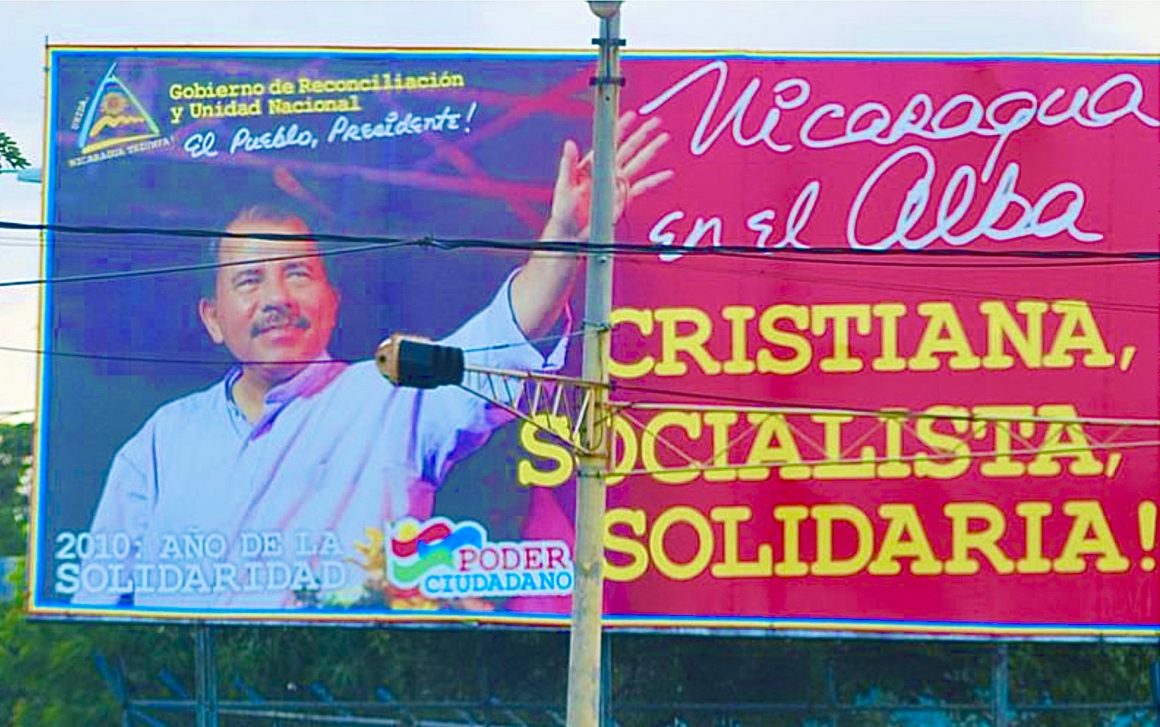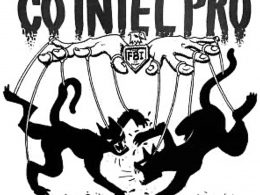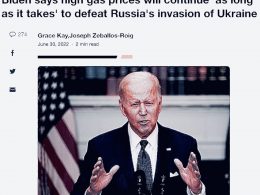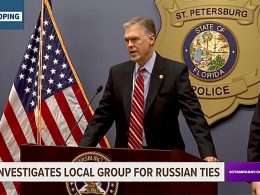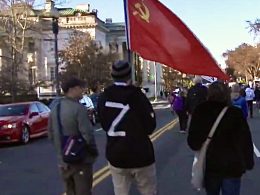Dogmatism is the enemy. That’s the lesson we can learn from contrasting the practical way in which Nicaragua’s Sandinista revolution has built socialism, with the uncompromising and out-of-touch way the conventional U.S. left believes it can build socialism. Nicaragua is such a good example to use for showing dogmatism’s incompatibility with any U.S. revolution both because of its geographical proximity to where we are; and because it has a socialist government that takes stances which show just how necessary it can be to act flexibly as a Marxist. Namely the stances that Nicaraguan socialism should be represented by Christianity; and that social conservatism is the policy which socialist Nicaragua should be defined by.
I’m neither a Christian nor against abortion, and it’s highly unlikely that a socialism where we are would embrace any state religion or ban abortion (as Nicaragua has done). It’s ironically because of how significant religion is in U.S. culture that establishing a particular state religion here wouldn’t get the support of the people, and opposition towards abortion in America exclusively comes from a shrinking minority of religious rightists. The point I’m making by drawing attention towards socialist Nicaragua’s religious social conservatism is that when the conditions you’re navigating are conducive to a certain mode of policy, it’s best not to pretend like those conditions are different from how they actually are.
Maybe this means implementing an educational program to change the existing culture, or maybe it means shaping policies according to that culture; Nicaragua has evidently concluded that its conditions are best for the latter. The important thing is to recognize that regardless of whatever one’s ideals may be, you’re going to need to navigate a reality that’s bigger than you; and that to ignore this reality is to make yourself unable to build socialism.
Does this make Nicaragua’s abortion policy right? If not, it isn’t the business of people in the imperial center like me. Our only responsibility in regards to Nicaragua is to combat our government’s sanctions and destabilization operations, which are inflicting violence upon Nicaraguans and countless other peoples around the globe. Our media seeks to convince us that each contradiction within a socialist government means we should view that government with nothing besides hate, but the reality is that these governments are essential for keeping their people free from imperial domination. To discard a socialist project is to fail to show respect for the work which that project’s contributors are doing to free their people from poverty and scarcity; poverty and scarcity that were engineered by imperialist governments like ours.
When you investigate Nicaragua’s socialist project, you see how valuable it is, and how important it is to learn the lessons from existing socialism. As the communist Wawen Ewimbi reported last year after traveling to directly witness the work of Nicaragua’s revolutionaries:
The majority of Nicaraguans are engaged in the political realm at a level that makes modern U.S. political discourse laughable. The sense of education and political efficacy was a loud culture shock. Outside the American bubble of red and blue, revolution is not a theoretical concern for essays and the ether but a tangible, hard won necessity to leading a dignified existence on Earth in the face of colonialism’s catastrophic effects. Young and old, they are dedicated to building something better of a world for all of us together with Mother Earth. This means revolutionary militancy starts young and continues from generation to generation. The land is a priority to the people here. Balancing the climate disaster with best practices for ecology and development is an especially difficult task for Global South countries starved of resources and facing the brunt of eco-decline. Despite this, the national government puts major effort towards preservation, flora y fauna maintenance, and disaster mitigation.
The lesson from this which Marxists in the imperial center must internalize is that it’s possible to successfully build socialism, while not having that version of socialism conform to an ideal that you’ve previously imagined. If Nicaragua can achieve these things while enforcing a social conservative policy model, we can do things just as great while not basing our practice off of a purity fetish. The predominant mentality among modern American socialists is that we’ll fail if we don’t embrace this fetish, even though the opposite is true. Being narrow in your thinking and practice is how you fail as a socialist.
The enemies of our cause are trying to keep us in this stubborn way of thinking; they want to get us to incorporate ideas that are specially designed to undermine revolutionary progress. These ideas come from the same strain of thought that’s put forth by our media’s color revolution propaganda about countries like Nicaragua; when U.S. news outlets and NGOs point to things like Nicaragua’s abortion laws as justification for overthrowing the country’s government; while omitting the cultural context behind these laws and the objectively positive deeds of the Sandinistas; they employ the same reasoning that’s behind ultra-leftist strains of “socialism.” Both ideological elements are based within a purity fetish mentality, where undeniably progressive things are seen as discardable because of real or perceived contradictions.
A recent way the ultra-lefts in our spaces have propagated this counterproductive dogmatism is by acting like any perspective outside their own leftist niche represents colonial chauvinism. I believe that the indigenous tribes should be given as much land as they desire to get back after the imperial state is overthrown. I also don’t think it’s a given that the United States is going to continue to exist after workers revolution. This doesn’t mean I accept the dogmas that are far too prevalent among the self-described Marxists who’ve attached themselves to anti-colonialism.
One of these dogmas is that Marxists should focus on attacking the U.S. flag and the “American” label, which is something I used to do until I gained a better understanding of our practical realities; even if it’s true that the American identity has an inherent contradiction, it’s not essential for indigenous liberation that we make combating this identity a central part of our practice. That in fact harms the cause of national liberation, as it distracts from the type of struggle which represents tangible, materially based gains for the oppressed nations.
This is the struggle that involves an effort by all exploited people, and opponents of international monopoly capital, to build an alliance which can defeat our ruling institutions. Fighting against the centers of socioeconomic power is almost infinitely more meaningful than fighting against a symbol, especially when you don’t have the power to be able to end that symbol’s massive cultural influence; we actually have the ability to to end the influence of the World Economic Forum, the International Monetary Fund, the banks, the monopolies, the landlords, and the other sources of economic violence. Henry Winston explained why an alliance against these forces is crucial; and why in order to build it, we must accept that revolutions unfold uniquely according to their local conditions:
Lenin wrote, “One must understand the changes and growth of every revolution. The revolution proceeds in its own way in every country . . . ” (Collected Works, Vol. 28, Progress Publishers, p. 123.) And on another occasion, Lenin declared that “different nations are advancing in the same historical direction, but by very different zigzags and bypaths . . . “(Collected Works, Vol. 29, p. 195.) For colonial peoples, liberation starts with rejection of the myth that their fate can be determined “jointly” within the framework of the tight controls that link it to the U.S. economy. For the Black people in the US, on the other hand, liberation is realizable only on the basis of overcoming exclusion and inequality through an anti-monopoly movement, in which the Black people and all who are exploited by the common corporate enemy seek to establish joint control of the country’s economy
This correct strategy is contradicted by the dogmatic strategy of the ultra-lefts, who advocate not for joint economic control among all proletarians, but rather an ethnically obsessed project at separating Native workers from white workers. This is the only conclusion we can get from reading the resources that many of these ultras promote, such as “Decolonization is not a metaphor”; Laine Sheldon-Houle of the Swan River Nation articulates a Marxist critique of this manifesto, pointing to the anti-worker ideas which are hidden within its seemingly radical rhetoric:
Wayne Yang published an essay titled “Decolonization is not a metaphor”, in which they argue that decolonization means: “For social justice movements, like Occupy, to truly aspire to decolonization non-metaphorically, they would impoverish, not enrich, the 99%+ settler population of the United States.” This directy pits Indigenous people against “settlers”. The 99 per cent figure the Occupy movement was referring to is the entire population minus the wealthiest top one per cent. This is mostly referring to the working class, although not in a precise way. The cynical conclusion in “Decolonization is not a metaphor” is that the fundamental interests of Indigenous people are opposed to the interests of all non-indigenous people. But in reality this is not the fundamental division in capitalism. In fact, within the Indigenous community there are Indigenous capitalists who benefit from the exploitation of Indigenous and non-Indigenous workers. In response to the explosion of the Indigenous movement, the Canadian Liberal government has been hard at work fostering an Indigenous ruling class to co-opt Indigenous leaders and give off an appearance of change.
Even if someone doesn’t share the polemic’s conclusion that Native liberation would have to mean making the white workers poorer, they’re reinforcing its dogmas as long as they embrace an ultra-left stance on national liberation. We need to come to a synthesis between the domestic and international struggle, a synthesis that these ultras don’t want to adopt; if you let your focus on the fights within U.S. borders dissuade you from supporting Russia against the imperial hegemon; or from defending China and the DPRK; or from building alliances with other parts of the anti-NATO movement; anything correct you say about anti-colonialism is going to get undermined by ultra-left dogmas.
We can’t win against the capitalist state in the core without sufficiently fighting against imperialism across the peripheries; this is both because global imperialism is the strongest part of our capitalist state’s power structure, and because pro-imperialist ideology is what maintains the Democratic Party’s covert influence over the communist movement. When we accomplish the equivalent of what Nicaragua has, we’ll only have done so after rejecting purity fetishism’s dogmas, and building a movement based upon what our conditions require.
————————————————————————
If you appreciate my work, I hope you become a one-time or regular donor to my Patreon account. Like most of us, I’m feeling the economic pressures amid late-stage capitalism, and I need money to keep fighting for a new system that works for all of us. Go to my Patreon here.
To keep this platform effective amid the censorship against dissenting voices, join my Telegram channel.




